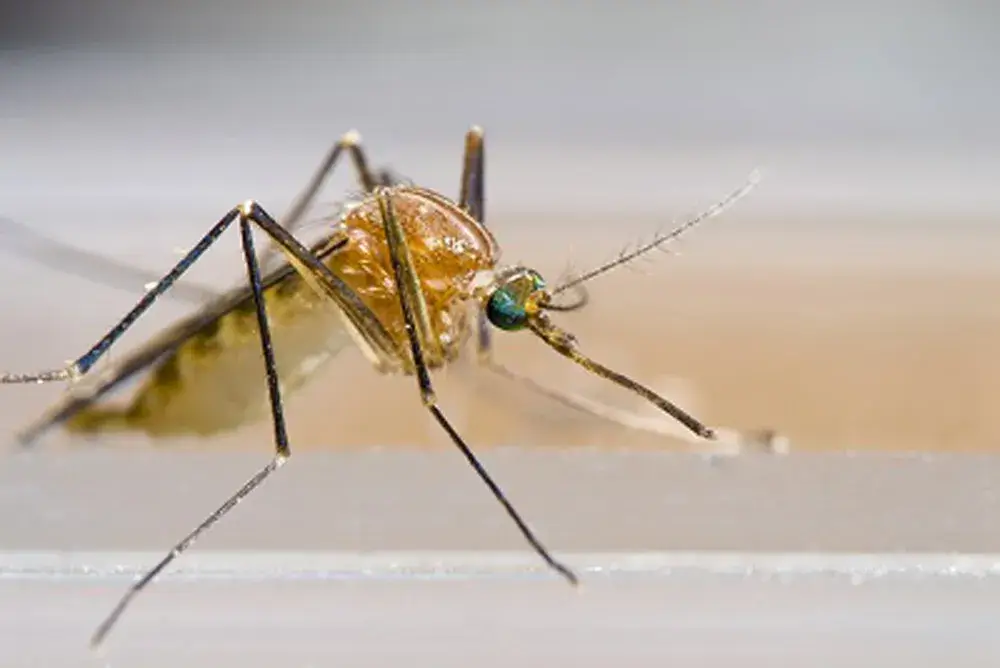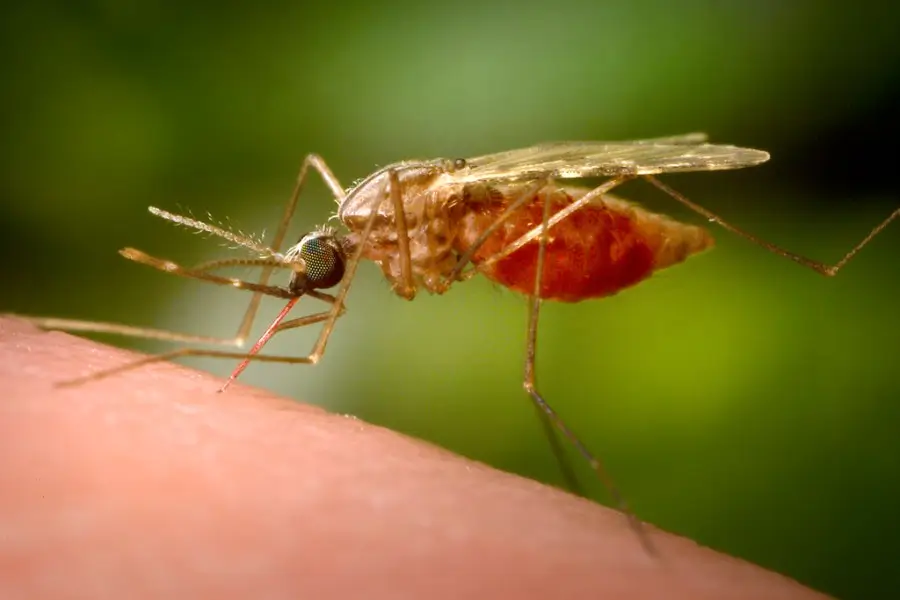You've heard about the Western Nile Virus? If not, it is time to update, because this virus has become an increasingly relevant subject. It is a virus that can cause a number of health problems and in some cases it can be very serious.
We will better understand what it is, how it acts, and what are the symptoms and treatments available. Knowledge is the best weapon to protect health, and here you will find information that can make a difference.
Article Index:
O Western Nile Virus is transmitted mainly by mosquitoes. The infection may go unnoticed in many cases, but for some, the effects may be more serious. Therefore, it is essential to know and know how to prevent yourself. The world is constantly changing, and with this, new diseases and infections arise. What you need to know is that the correct information can help prevent spreading and impacts negative in public health.

If you want to stay informed about health and understand how this virus works, continue here. Let's dive into the nuances of Western Nile Virus, from the symptoms to the forms of treatment, in addition to the prevention strategies that we should all know. Do not miss reading until the end, because health is a priority and every detail can count!
What is West Nile Virus?
O Western Nile Virus is a virus that belongs to the Flaviviridae family. He was first identified in 1937 in Uganda, and has since spread to various parts of the world. Transmission is mainly through the bite of infected mosquitoes, being the Nile Virus Transmitter mosquito the main vector. In addition, the virus can be transmitted from birds to mosquitoes, and in some rare cases, from one human to another, through blood transfusions or organ transplants.
How does Nile Virus spread?
Transmission of Western Nile Virus occurs primarily through the Culex mosquito bite, which feeds on infected birds. When the mosquito bites a human being, the virus can be transmitted. It is important to note that most people who contract the virus have no symptoms. However, about 20% of infected people may develop more serious symptoms.
Symptoms of Nile Virus Western
Symptoms Western Nile Virus can vary a lot. In most cases, the infection is asymptomatic. However, some individuals may experience flu-like symptoms, such as:
- Fever;
- Headaches;
- Muscular pains;
- Fatigue;
- Nausea and vomiting.
In more severe cases, infection can lead to serious complications such as encephalite or meningitis, which are inflammations in the brain and membranes that involve it. These cases are rare, but the concern is valid, especially for risk groups such as elderly and people with chronic diseases.
Nile Virus Diagnosis Western
To diagnose infection by Western Nile Virus, doctors usually perform blood tests to detect the presence of antibodies or viruses. Early diagnosis is essential for proper treatment and to avoid possible complications.
Western Nile Virus Treatment
Currently, there is no specific treatment for infection by Western Nile Virus. In most cases, treatment is symptomatic, i.e. it aims to relieve symptoms. Doctors can recommend rest, hydration and medications to control fever and pain. In more severe cases, hospitalization may be necessary to monitor and treat complications.
Prevention of Nile Virus Western
Prevention is the best way to protect yourself from Western Nile Virus. Some simple measures can help reduce the risk of infection:
- Use insect repellent;
- Dress long sleeves and long pants;
- Avoid areas with high mosquito population;
- Install screens on windows and doors;
- Eliminate places with standing water where mosquitoes breed.
Nile Virus Cases in Brazil
In Brazil, cases Western Nile Virus are rare, but they do not exist. It is important that health authorities continue to monitor the situation, since climate change and the increase in urbanization can favor the spread of the virus. The awareness of the population is essential to maintain public health and safety.
Vaccine Western Nile Virus
Currently, there is no approved vaccine for human use against Western Nile Virus. However, there are vaccines available for animals, especially for horses, which can be affected by infection. Research for the development of human vaccines continues, but there are still no predictions when this could happen.
Nile Virus Complications Western
Although most infections by Western Nile Virus be light, some people may develop serious complications such as paralysis and neurological problems. Risk is higher in older people or pre-existing health problems. It is always good to stay alert and seek medical help by noting more serious symptoms.
Epidemiology of Nile Virus Western
The epidemiology Western Nile Virus shows that the virus is present in various parts of the world, especially in Africa, Europe, Asia and America North. Constant monitoring and awareness campaigns are essential to control the spread and protect the health of the population. Thus, the exchange of information and education on the subject are fundamental.
In summary, the Western Nile Virus is a growing concern in public health. Knowing your symptoms, ways of transmission and prevention is fundamental to protect yourself and others. Do not hesitate to seek information and be always attentive to what may affect your health and that of your community. Awareness and education are great allies in the fight against this virus. Take care and stay informed!
FAQs
1. What is West Nile Virus?
O Western Nile Virus is a virus of the Flaviviridae family, transmitted mainly by mosquitoes. It can cause infections that vary from asymptomatic to more serious symptoms such as encephalitis and meningitis.
2. What are the symptoms of West Nile Virus?
Symptoms Western Nile Virus include fever, headaches, muscle pain, fatigue, and in severe cases there may be inflammation in the brain and meningitis.
3. How is the diagnosis of Western Nile Virus made?
Diagnosis of Western Nile Virus is done through blood tests that detect the presence of the virus or antibodies. Early diagnosis is important to avoid complications.
4. There is treatment for Nile Virus infection Western?
No specific treatment for infection Western Nile Virus. Treatment is symptomatic, aiming to relieve symptoms and, in severe cases, hospitalization may be necessary.
Five. How can I prevent Western Nile Virus infection?
Prevention of Western Nile Virus includes the use of repellents, proper clothes, disposal of stopped water and installation of screens in windows to prevent mosquito bites.
By: Tecnerds










